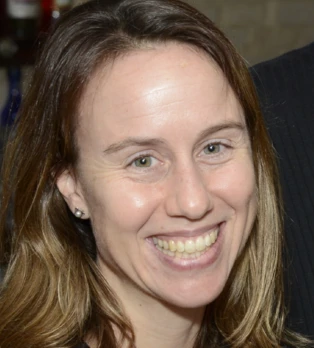About "Notes From the Field": With this occasional feature, we let World Bank professionals who are conducting interesting trade-related projects around the globe explain some of the challenges and triumphs of their day-to-day work. The views expressed here are personal and should not be attributed to the World Bank. All interviews have been edited for clarity.
The Trade Post: Tell me a little bit about your background and how you became interested in trade.
Mr. Kweka: Before joining the Bank I was working as a senior research fellow in a think-tank in Tanzania. There was a project about trade and poverty. It was very interesting because it gave me the opportunity to ask very critical questions about whether trade liberalization is really good for poverty reduction and what is necessary to build that kind of relationship.
We developed a small toolkit which included advocacy material with easy access to everyone, including those who speak local languages, to see what will be the factors which are key for trade to be useful for poverty reduction.
That was one project. The second was a study I participated in with the Overseas Development Institute (ODI). They had this big project in a number of African countries on trade and poverty linkages. This study also gave me an opportunity to see a very broad perspective of whether there is any chance trade impacts poverty-reduction and, actually, what does trade liberalization mean for the common man? All of this motivated me and I kept on my interest working on trade until I joined the Bank and met this wonderful opportunity to work with the trade trust fund I was coordinating and managing for Tanzania. It opened a lot of opportunity to do a lot of exciting work for Tanzania.
The Trade Post: Describe an interesting project you worked on in Tanzania – perhaps one that involved this intersection of trade and poverty.
Mr. Kweka: We did not only analytical work, but also technical assistance, including advisory work. And one project I could mention very notably is the work on Special Economic Zones (SEZs). It all started with a trade mission led by Paul Brenton. We met this government agency called the Export Processing Zone Authority. They needed us to help them in defining their strategic plan. Then we started working very closely with them.
Our motivation was actually simple: Special Economic Zones – or traditionally, they used to be called Export-Processing Zones – were really a very good opportunity for countries to achieve their competitiveness agenda and at the same time be able to promote exports and job creation. It was really interesting and we think that it’s one of those areas that lie between trade policy and industrial policy. It could help the country very effectively.
We worked on this project and it became a very good beginning for a long and useful journey. We developed a very good working relationship with the government agency. As a result, we did a lot more work with them, not only to design the strategic plan, but also some other outputs, including the legal framework, institutional framework and the master plan for specific zones.
The Trade Post: Explain what a Special Economic Zone is and how it can help a country like Tanzania.
Mr. Kweka: A Special Economic Zone is an instrument for enhancing competitiveness in an environment where there are a lot of business constraints. You create a specific environment that is conducive to particular types of firms or businesses, depending on the type of objective you want to achieve, so they are not affected by the prevailing business environment in that particular country. It’s kind of like an enclave. So these firms, which operate within that privileged environment, are not affected by investment climate or business environment constraints.
What you give these firms are things like access to backbone services: power, telecommunications, customs services, so they don’t have to go through the red tape. You give them fast-track business licensing and access to transport infrastructure. And also you can attract them through tax holidays, fiscal incentives – although nowadays they are not very important, and we try to advise governments not to lean so much on them.
You get something out of it. As a country, you are able to achieve some of your objectives, including exports, job creation – employment – because some of them are very labor-intensive activities. Also, you build spillover effects – in terms of skills, learning, and technology all at once – in an environment where the overall business environment across the country is relatively bad. This can be done in an enclave, where an area is physically enclosed so you have a number of firms – 50 to 100 firms – operating in one enclosed area, and it could be a customs territory of its own. Or you could have a “wall-less” system in the sense that it is a stand-alone factory, but it has been given a license to operate in a type of environment where their business processes are fast-tracked.
In Tanzania, the country has some comparative advantage in agro-processing because it is an agricultural economy, by and large. But other than agribusinesses, you have some firms or manufacturing activities that are labor intensive and enhance your job-creation agenda, including textiles. So, most of them will be textile, not only because of job-creation, but because there exist some opportunities to exploit some market preferences like those of the African Growth and Opportunity Act (AGOA), United States legislation that gives some African countries preferential treatment in the trade of some products. In recent years, there has been the addition of industries having to do with packaging, processing and assembly.
The Trade Post: Were there any hurdles in working on Special Economic Zones with the Tanzanian government, and how did you overcome them?
Mr. Kweka: We moved through two significant phases. In the first phase, the government agency didn’t have a clue as to how they could drive the Special Economic Zones program in accordance with global best practices. One specific example is that because the country is large and agriculturally rich everywhere, the government thought it could establish zones everywhere. But actually, location is one of the huge factors in creating a good zone. Our first level of advice was: change your strategy. We advised the government to adopt international best practices, which say, start small and gradually; promote very few zones in areas which are most attractive so you can create momentum.
The second piece of advice was: have the private sector at the forefront. The government was almost doing it alone and looking in-house and it was a bit difficult. We entered into a series of dialogues to make them understand. Over time, we saw that the message got across. We had kind of an exchange of official memos that showed that they adopted our advice. The way the global market place is moving, the government is not going to do it the best way; the private sector needs to be involved.
In the second phase, SEZs became an important agenda within the government. The government mainstreamed it within its policymaking. The challenge was how to operationalize it. So we kept on giving them some support. They didn’t have the law to guide it, so we offered technical assistance. They are still struggling with the institutional framework. We are yet to be there in terms of the government trying to relinquish their role to the private sector in a manner that will build a healthy partnership.
But now we are in the phase in which the importance of this program is known and it is recognized as a way to turn around the country in terms of industrialization and competitiveness and job-creation. It’s well-known, and it’s being adopted. This agency has been given more money to support these activities, and a number of firms have started on the ground, and they are employing hundreds and hundreds of people in these zones. Some new zones have been developed.
The Trade Post: What is the next step in this project?
Mr. Kweka: One big issue is the government trying to re-define its role in the whole process. The institutional framework is not very effective. My major worry is that – we have done many good things in this project and the Bank has achieved a lot, the government has achieved a lot; the government can make a lot of progress. But now, there are issues regarding guidelines around how to develop this program and transparency about administering and facilitating investment.
In this respect, it will be important that those core principles of the marketplace should not be compromised. For instance, how do you go about selecting investors in the zone? We have seen recently the Chinese investors have been flocking to the country, which is good. But at the same time, the government has not been able to enhance involvement of other types of investors and to try to build that type of global perspective. I’m worried about that because sometimes it’s easier said than done and it will be self-defeating if everything is nice on paper, but in the implementation things are done differently. And, you know, we cannot micromanage that kind of process. But I think with the continued support of the Bank in terms of investment lending, technical assistance – I’m sure it will guide the country toward a better future.


Join the Conversation